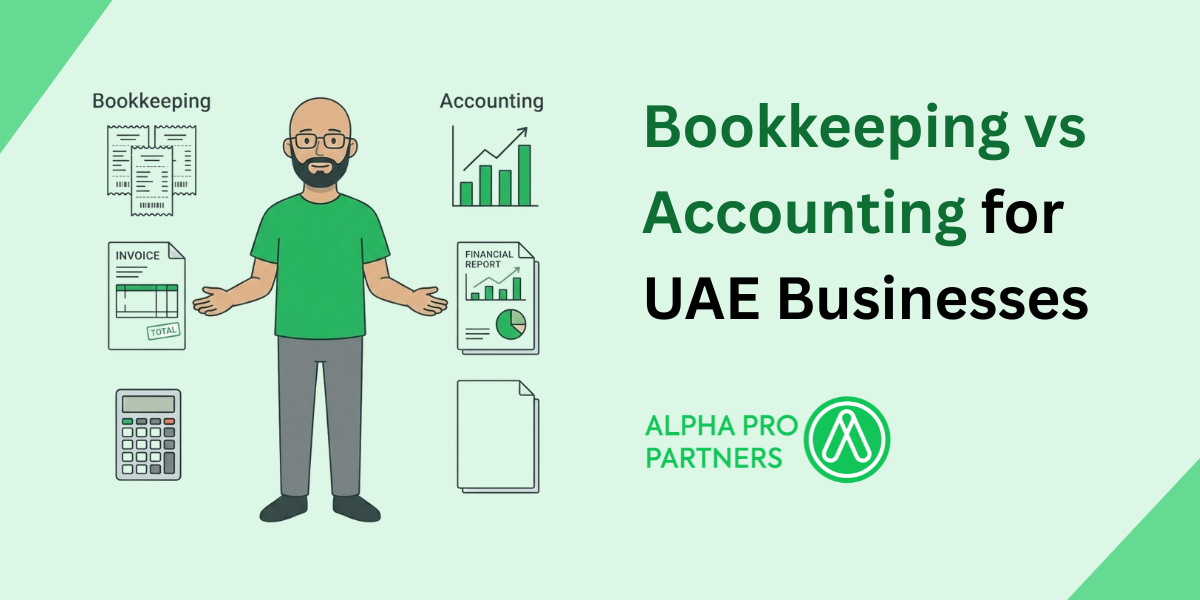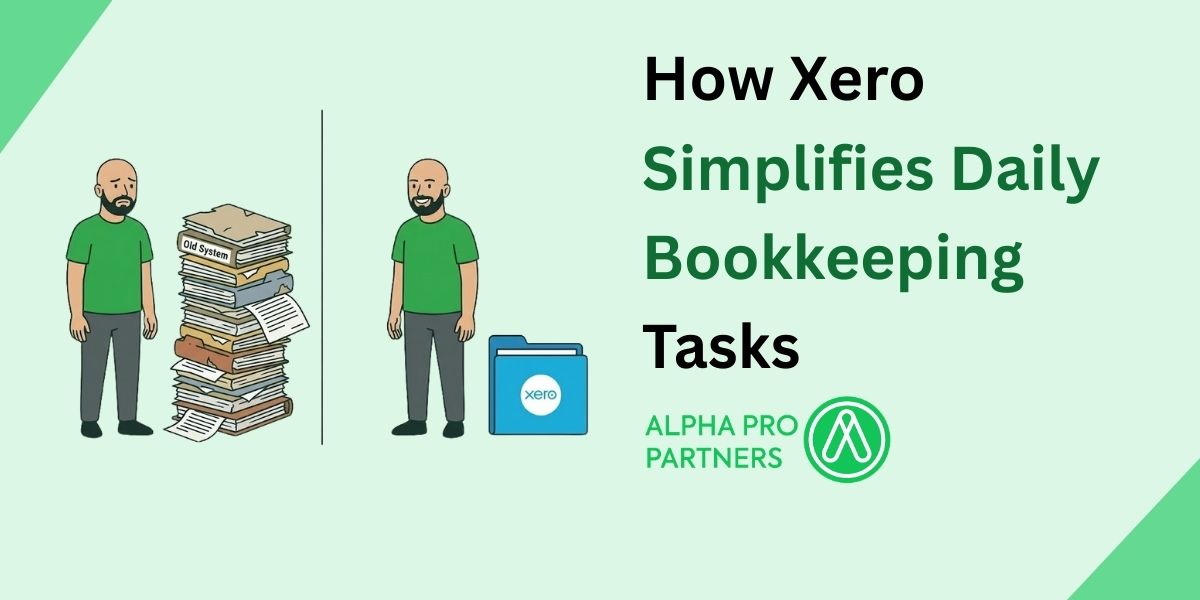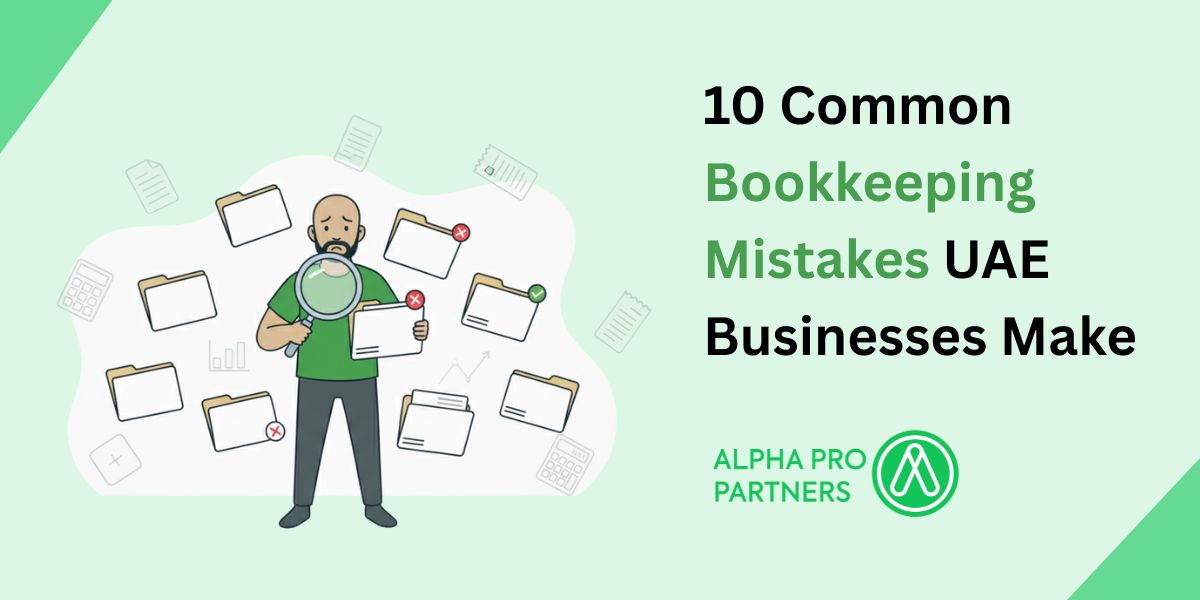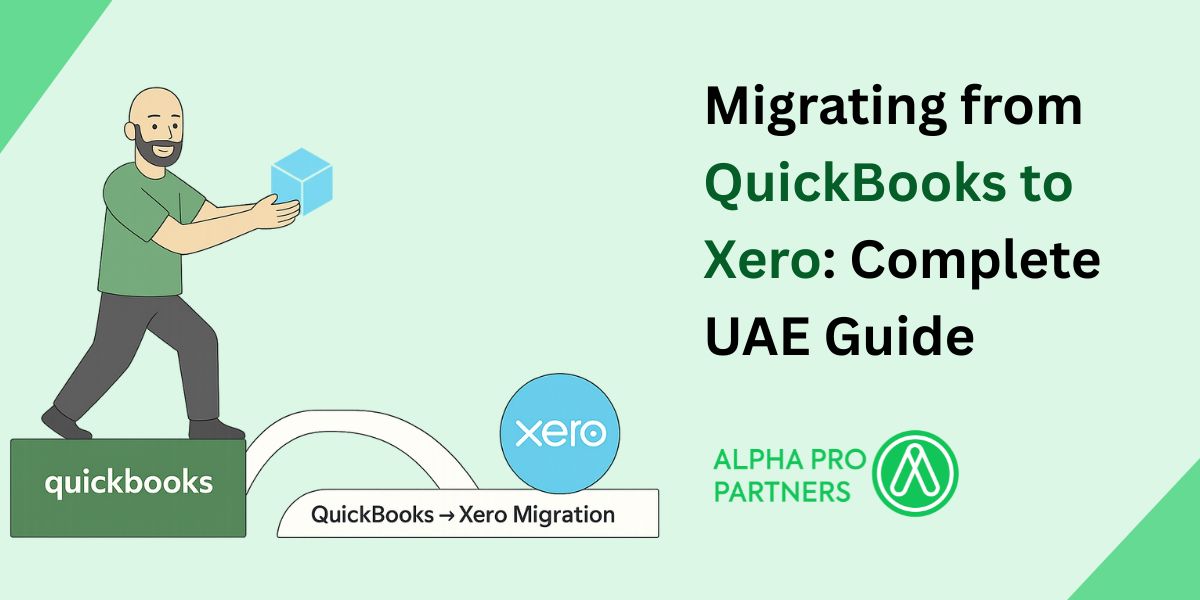Effective Bookkeeping Practices for UAE Businesses

Bookkeeping probably isn’t the reason you launched your business in the UAE. But without it, your success can get stuck in neutral. If you want to stay compliant, grow steadily, and avoid a mess during tax season, getting your records right from the start is a must.
With corporate tax now in place, the bar is higher. Every invoice, payment, and receipt matters. So let’s break down what good bookkeeping looks like in the UAE and how to make it part of your business routine without the stress.
How to Set Up Bookkeeping for a UAE Business
Keep Business and Personal Money Separate
First rule? Stop mixing your expenses. Open a separate business bank account. It’s the easiest way to track what you earn and spend without blurring lines with your personal life.
This helps you:
- Know your real profit
- Avoid confusion during audits
- Build a clearer budget
Use Digital Tools From Day One
Start with software, not spreadsheets. Tools like Xero, Wafeq, or QuickBooks can sync with your bank, track VAT, and give you real-time insights.
Look for features like:
- Automated bank feeds
- Cloud access
- Multi-currency support
- Mobile tracking for on-the-go updates
Stick to a Weekly Routine
Pick one day a week to log expenses, check income, and reconcile accounts. Consistency beats perfection. You’ll stay ahead of tax deadlines and catch issues early.
Review and Clean Up Regularly
Each month, take a closer look. Are all your receipts logged? Any duplicate entries? Anything missing?
Better yet, involve a professional. A quick monthly review by an accountant can save you hours down the road.
What You Need to Know About Corporate Tax
Corporate Tax Basics in the UAE
Since June 2023, most UAE businesses are subject to corporate tax. Here’s a quick breakdown:
- 0 percent tax if your net yearly profit is up to AED 375,000
- 9 percent tax if your profit exceeds that
- Multinational rules apply if you meet certain global income thresholds
VAT still applies too. So bookkeeping helps with both compliance and planning.
Who’s Exempt
Some businesses are exempt from corporate tax, including:
- Government-owned entities
- Natural resource companies
- Certain investment funds
- Public benefit organizations
If you're in a free zone, you may still benefit from 0 percent tax. But you must file properly. Don’t skip the paperwork.
Freelancers and Tax
Freelancers making less than AED 375,000 annually aren’t taxed. But once you cross that line, you’ll need to register and report.
Bookkeeping Tips for Small Businesses
Keep It Simple and Clear
Avoid overcomplicating things. Record every transaction, store all receipts, and label everything. A small error today becomes a big hassle later.
Use the Right Software
Even if you're just starting, good software makes a huge difference. It reduces errors, helps with invoicing, and tracks payments. Plus, most platforms make VAT reporting a breeze.
Automate Payments and Invoices
Set up recurring billing. Auto-schedule your supplier payments. You’ll save hours each month and lower the chance of late fees or missed invoices.
Track Cash Flow Weekly
Knowing what’s coming in and going out each week keeps you in control. Cash flow problems don’t happen overnight, they build slowly. Staying close to your numbers gives you time to react.
Prepare for Taxes Early
Don’t wait until the deadline to scramble. Set aside funds for taxes every month. Keep digital records sorted by category and date so you can file quickly when it’s time.
Should You Hire a Bookkeeping Service?
Startups Need Support
If you’re just starting out, outsourcing can be a lifesaver. A professional bookkeeping firm can:
- Set up your systems
- Train your team
- File your VAT and tax reports
- Keep your records clean and compliant
Benefits of Hiring a Local Firm
A UAE-based firm understands local laws, free zone rules, and banking systems. They’ll help you avoid missteps and stay aligned with local regulations.
Many also offer financial planning, budgeting help, and cash flow forecasting.
Use Cloud-Based Firms
Look for firms that give you a login to monitor everything in real-time. That way, you stay involved but don’t get stuck in the weeds.
Outsourced Bookkeeping for Growing Companies
When It’s Time to Outsource
If your business is growing and you’re swamped with receipts, it’s probably time to hand it off. Outsourced services cover:
- Monthly reconciliation
- Expense categorisation
- Payroll processing
- VAT filing
- Audit preparation
Accounts Payable Services
Need help managing supplier payments? Outsourced AP teams can handle the entire flow, from invoice approval to scheduled payments.
This keeps your vendors happy and your payment cycles predictable.
Payroll Services
Staying compliant with UAE labour laws isn’t always easy. Payroll firms take care of salary processing, WPS files, and local tax requirements so you can focus on team performance.
Internal and External Audits
Need to get investor-ready or meet licensing requirements? Bookkeeping firms can handle full audit prep and liaison. They ensure clean, accurate, and compliant books.
VAT Compliance and Consultancy
Since VAT launched, the rules keep shifting. A good VAT consultant ensures you stay compliant, submit correct returns, and claim back what’s rightfully yours.
Final Thoughts
Bookkeeping might seem like a back-office task. But in the UAE, it’s a front-line tool for business stability, tax readiness, and long-term success.
Whether you’re a freelancer, startup, or growing SME, the right approach to bookkeeping saves you time, protects you from penalties, and gives you clarity over your finances.
At Alpha Pro Partners, we help businesses across the UAE simplify bookkeeping, stay tax-compliant, and plan for growth. If you’re unsure where to start, we’ll walk you through it.
FAQ: Bookkeeping in the UAE
1. Do I need separate bank accounts for my business?
Yes. Keeping business and personal finances separate is critical for clean records and accurate tax filing.
2. What bookkeeping software is best for UAE businesses?
Xero, QuickBooks, and Wafeq are all great options. Look for ones that support VAT and multiple currencies.
3. How often should I update my books?
Weekly is ideal. At minimum, reconcile your accounts monthly to catch errors early.
4. Do freelancers in the UAE need to do bookkeeping?
Yes. Even if you’re under the tax threshold, keeping proper records is important for client billing and cash flow management.
5. When should I consider outsourcing bookkeeping?
If your time is better spent growing the business or you’re missing deadlines, it’s time to hand it off.
6. What’s included in outsourced bookkeeping?
It usually covers expense tracking, invoicing, payroll, VAT filing, and financial reports.
7. Is VAT included in regular bookkeeping?
Yes. Any bookkeeping system in the UAE should track VAT collected and paid.
8. What if I’m in a free zone?
You may benefit from tax exemptions, but you still need to file returns and keep proper records.
9. How long should I keep financial records?
At least five years, as required by UAE law.
10. Can Alpha Pro Partners help with setup?
Absolutely. We help new businesses set up software, processes, and reporting from day one.

.webp)
















.webp)
.webp)


.png)
.png)
.png)
.png)
.png)

.png)
.png)



.png)
.png)





.jpg)


.jpg)





.png)
.png)






.png)


